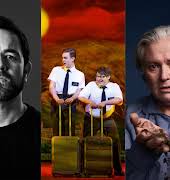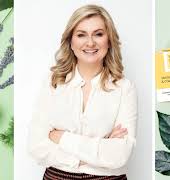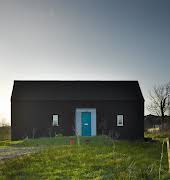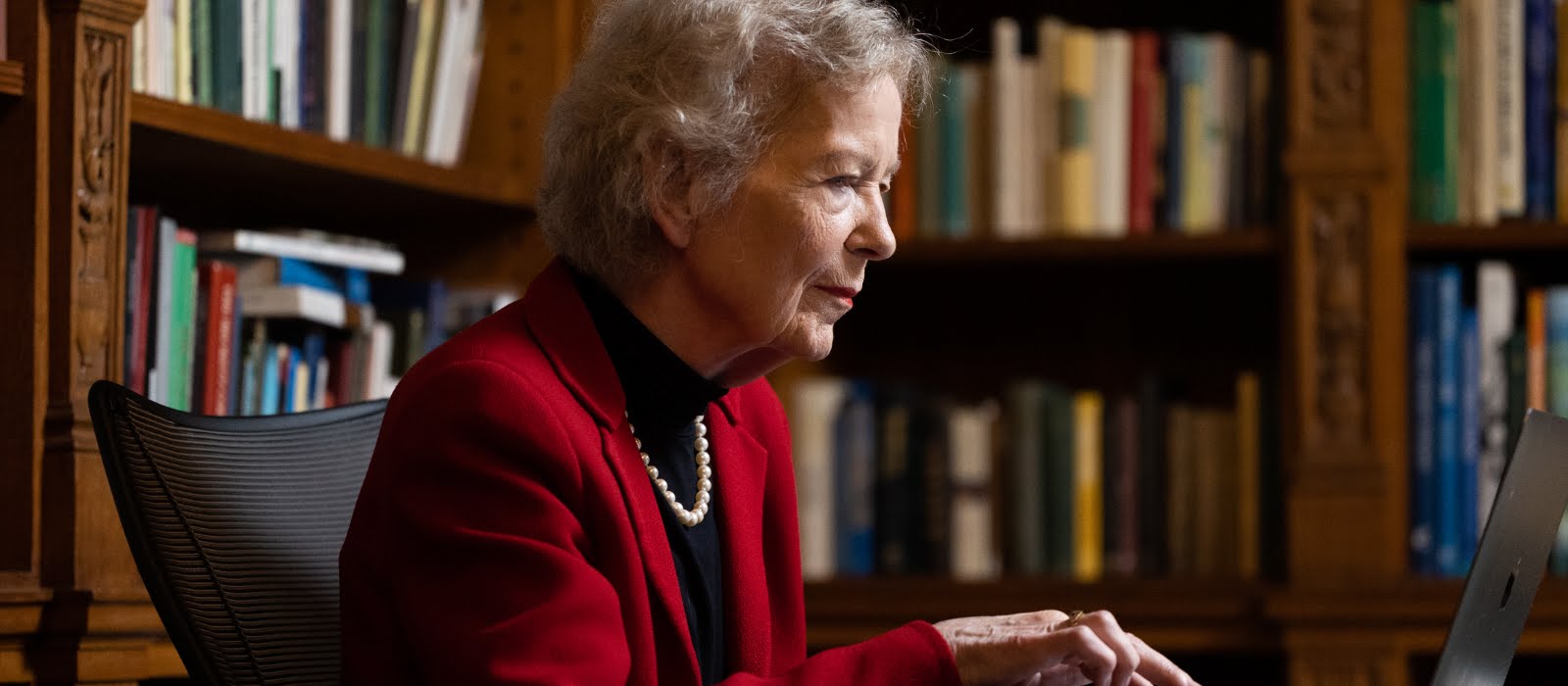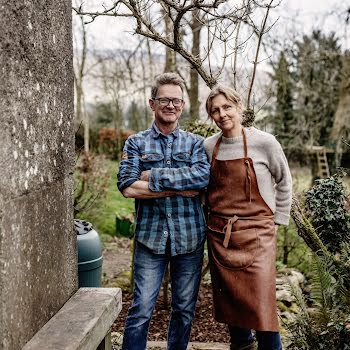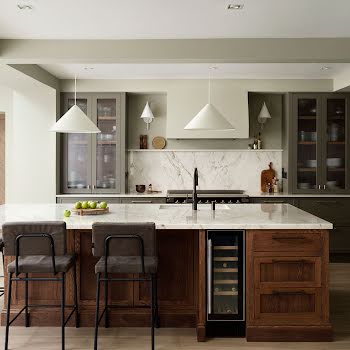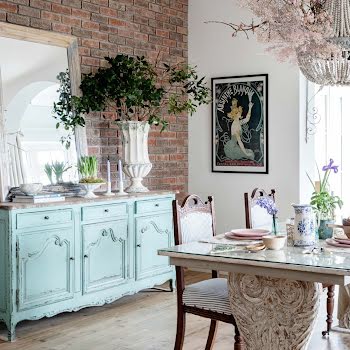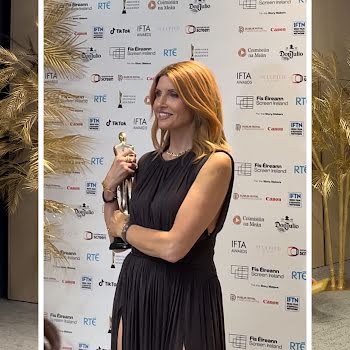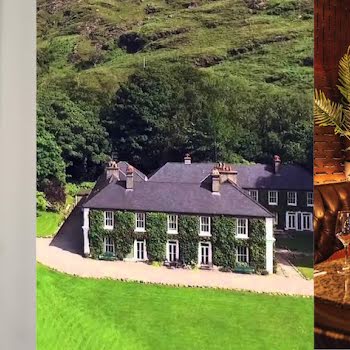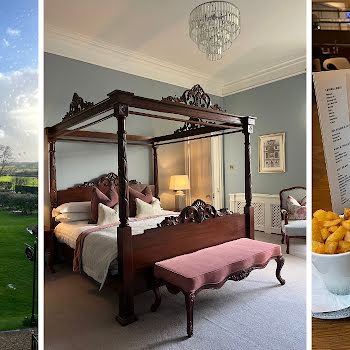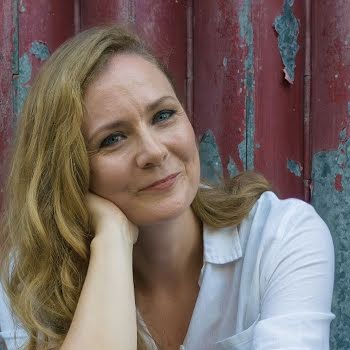Sarah Finnan sat down with former president Mary Robinson and award-winning Irish filmmaker Aoife Kelleher to discuss their new film, Mrs Robinson, climate justice and the current challenges facing women in politics today.
A reforming constitutional lawyer and senator in her early career, Mary Robinson detonated an electoral earthquake when she became the country’s first female president in 1990. It was a Rubicon moment—both for Ireland and indeed, the world. There was a collective yearning for change and the country was confident that Robinson would be the one to usher it in.
Her influence was transformative. During her tenure, she used her position to highlight issues like domestic violence, lobbied for women’s rights and was instrumental in helping to decriminalise homosexuality. Later, as a crusading UN High Commissioner, she built a lasting legacy; fearlessly challenging perpetrators of human rights abuses all over the world.
Today, she continues to wield influence as Chair of The Elders—a group of global leaders founded by Nelson Mandela—and as a leading advocate against climate change through Project Dandelion, a women-led initiative addressing climate change. As role models go, she’s the ultimate.
Now the subject of a new documentary by award-winning Irish filmmaker Aoife Kelleher, Mrs Robinson tells Mary’s story, in her own words, for the very first time. Chronicling her tireless battles for justice over more than 50 years, from the streets to the courts, the ballot box, and the corridors of power, it’s an incredibly inspiring—and surprisingly emotional—watch.
“For me, a huge part of wanting to make this documentary was about the experience that I had at age eight, of watching a woman win the Irish presidency at a time when that had seemed so elusive. [It seemed] totally unattainable just a few years previously,” explains Kelleher. It’s an important film with historical significance but also with much cultural relevance today.
“The various phases of [Mary’s] life reflect the huge change that’s taken place globally, but also in Ireland. I think that what the film shows is that we’ve come very far, very fast, and that it’s really valuable to take a moment and look at all the battles that have been won in Ireland and how precious those advances have been. A lot of issues are in flux, and it can feel like Irish politics, European politics, global politics, are on a knife edge, [so it’s important] to really consider what matters to us.”
As a more private person, Robinson was reluctant to agree to a film about her life—it was Bride Rosney, Mary’s former special adviser, who convinced her to go for it—but she can absolutely see the value in it, citing her work for climate justice as a motivating factor. “I think it’s the urgency of the climate and nature crisis that wakes me up every morning, wanting to see what can be done.”
In many ways, the film is a call to action for younger generations to continue pushing for progress, to continue pushing for change. This was, of course, intentional and harks back to Mary’s time at Harvard where she saw just what could be achieved when people are prepared to pull together. “I actually take great hope from young people. There are terrific young climate activists, for example, I know many of them personally, and I love the intergenerational relationship because it’s different now. People of my age can learn so much from young people. They’re very social media savvy, as it happens, they’re very connected… they use the word ‘love’ quite a lot in their work because they see the connections. They feel like global citizens.”
The climate crisis, as Robinson so eloquently puts it, “is a man-made problem that needs a feminist solution”. Women are obviously at the fore of that, but finding a way forward requires all hands on deck. “When I say a feminist solution, that also includes men. It’s the solution that women tend to bring to problems. It’s not hierarchical, it’s sharing, it’s listening, it’s being practical, and it’s trying to really solve the problem together and thinking about how it affects everybody. Everybody has to have a voice… The climate issue is a very real one, and I’m glad that in the latter part of the film, it’s clear we’re trying to harness women leaders.”
Statistics can only get you so far though and there’s a line from the film that has stayed with me ever since; “We’re not going to move this agenda with science, we’re going to move it from the heart.” “I think that’s true of anything,” Robinson tells me. “Anytime you want to bring people with you, you’ve got to go deeper and appeal to the heart, and the emotions, not just the facts and the statistics. What I hope from this film really, is that it will encourage young people to know their potential, just as my parents encouraged me—I was very shy, and I had to get over that barrier—and also [to] encourage women in particular to go into politics.
“It’s not easy,” she concedes. “In fact, it’s much more difficult today than it was in my time because of social media, because of the harassment, the misogyny, etc. Anonymous social media misogyny is terrible, but we need a balance. We need more women in politics, more women in public life, and more young people having the influence that I was lucky to have at Harvard. That gave me what Nick called ‘My Harvard humility’,” she laughs. “He meant the opposite, but I really hope it will instil in people that sense of being able to make that difference.”
On the topic of women in politics, does Robinson have any advice for Kamala Harris having gone through a very similar process herself? Yes and no. “[I don’t really have any advice] but I’m really hoping that she will succeed. It’s incredibly important for the United States and for the world because the alternative is very worrying.”
Mrs Robinson opens in Irish cinemas nationwide on August 23. You can watch our full interview with Mary Robinson and Aoife Kelleher below.
Imagery courtesy of Breakout Pictures






